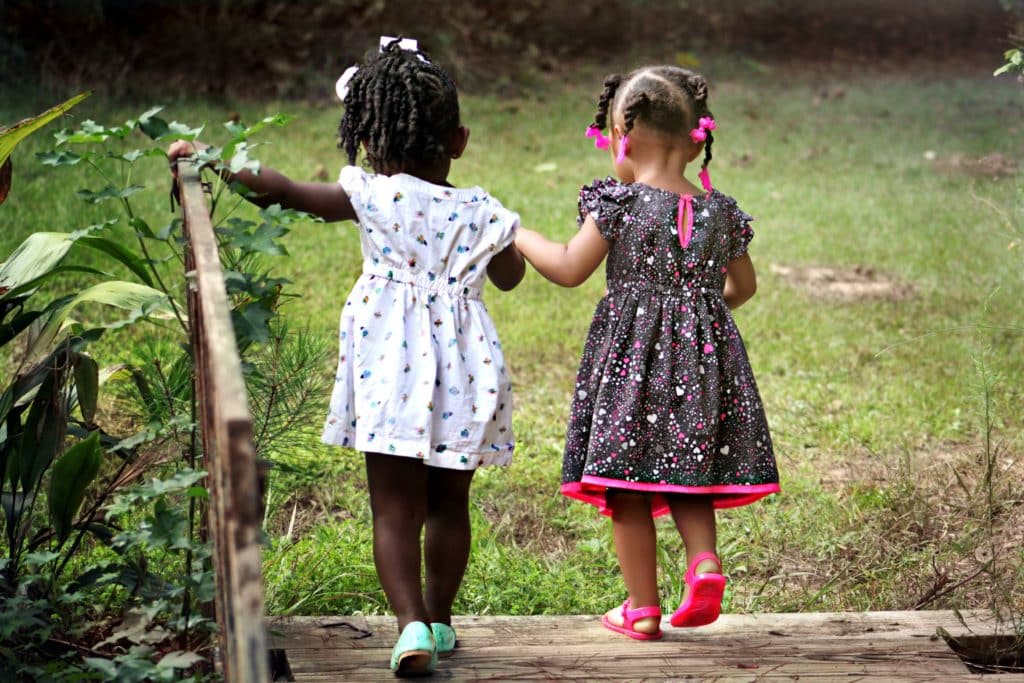
I’m Donna an Early Years Practitioner and Henry Facilitator. I run Stay & Play sessions and other parent and child sessions at our Children and Family Centres.
Let’s talk about school.
Does my child have to go back to or start school?
Yes. School attendance is mandatory from the beginning of the new 2020/2021 academic year. This means that it is your legal duty as a parent to send your child (if they are of compulsory school age) to school regularly.
As different areas may be subject to different restrictions going forward it is important to be aware of the rules in your area. Each school has different procedures for morning drop-off and afternoon pick-up and they will make you aware of these before your child starts or returns. You can only delay your child’s start return if you have discussed it with the school in advance.
With all children in England expected to be in school there are new, and sometimes changing rules, in place to help prevent the spread of the coronavirus and classrooms may feel and look very different.

For many parents the prospect of sending your baby or child back to childcare or school and returning to work yourself after so long at home together can be a daunting time. You may have concerns about what your child’s day will look like and how they will cope with any changes, or you might be worried about how your child’s health and other care needs will be met while they are there, and if they will be safe.
The last few months have been full of change for most of us, but the one thing that has been constant in your child’s life is you! As their parent, you have been there to carry out and implement new routines and rituals. Explain and help them overcome any worries or fears they may have about all the changes they have seen due to the pandemic.
You have been there to nurture them with comfort, support and most importantly your love. You have done a wonderful and sometimes challenging job of keeping you and your family safe and now because of the love, care and support your child has received from you during these challenges months they are now ready to return to, or start a new school and some semblance of normality, even if you’re crying inside at the thought of them returning or leaving them all day! They will be fine. Children are a lot more resilient than we think
When the time comes for your child to return to childcare or school it’s ok to feel anxious about the new changes that will be required for you and your child, you may feel very ready to send your child back and that’s ok too. There are no right or wrong ways on how we should be feeling. As parents we should trust our feelings and be secure in our knowledge that we are our child’s first educators and know them better than anyone else.
Will my child be safe when they return?
To ensure children, staff and parents have a smooth and safe transition each nursery, pre-school, childminder and school will do their own health and safety risk assessment as part of their planning before opening or reopening after periods of closure. They will implement a range of protective measures to help reduce any risks, ensuring children still receive the best possible care, support and education in a safe learning environment.
Many childcare settings have created a walk-through of their setting to help support children and families with the transition back. It explains all new health and safety procedure such as:
- One-way systems for entering and leaving the setting when dropping off and collecting children.
- Hygiene procedures like hand washing when entering
- Food preparation & lunch time routines.
- Toilet routines
- Settling your child in
Each childcare provider will have their own settling in policy and may approach the process differently and because of coronavirus and social distancing guidelines may have implemented changes to ensure they are keeping your child and everyone safe. check with your childcare provider on their current policy on this.
Their settling in policy will be explained to you along with all their policies and procedures during your child’s induction and you will get the opportunity to ask any questions or concerns you may have regarding your child settling.
Settling your child in gradually is often the best approach, as it gives them time to adjust and familiarise themselves with their new environment, people and routines. Most nurseries, pre-schools and childminders will agree there is usually a two-to four-week settling-in period, and depending on your child’s age, the induction will be phased, where you stay with your child for the first couple of short sessions, then you leave them for a few hours, before building up to a full day.
The more information you receive from your child’s setting or school about their settling in and transition procedures before your child starts the better prepared you and your child will be. One way to help you and your child with the transition is to walk or drive past the setting or school together, to familiarise them with what their new school or setting looks like, where it is, how they get there and how long the journey takes.
You know your child better than anyone, and your childcare provider will work with you and your child to ensure that the settling in period is as smooth and stress free as possible for all involved.
During the first few weeks of your child staring at nursery or pre-school, some providers may be happy to send you a text update, or for you to phone if you need reassurance on how your child is coping. Discuss this with your childcare provider beforehand so you know the best ways to keep in touch.
Dealing with your child’s emotions
Every child is unique, and the way they settle into their new childcare setting or the new rules around their current school will vary, depending on their individuality, personality, and emotional resilience. Some will settle with little fuss and no tears, while others may cry a lot, which can be distressing for parents.
Remember your childcare provider is professional, experienced and will have seen most scenarios and settled many, many children into their setting. They’ll know what your child needs and how to comfort them and have worked with children with a diverse range of developmental and emotional needs.

When you say goodbye to your child, childcare providers don’t recommend a long-draw-out goodbye. Let your child know you’re leaving and that you will be returning to collect them soon. It’s best not to leave your child without letting them know as this may cause them stress and think you have left them for good. The longer you hang around the longer your child thinks there’s a chance they are going home again with you. As soon as you’re gone your child will accept they’re staying for the day and settle well. A top tip is to keep it quick even if your child is crying.
Some children who appeared to settle into their childcare easily and with little fuss at the start, may regress later and become tearful when left. This is common, so try not to worry, it’s not that they don’t like it, it just a stage they are going through. be patient and give lots of reassurance and, in time, things should settle down again.
Managing the morning rush
For many parents the morning routine getting children ready for school can be stressful. There are things you can do to make this less stressful, below are a few tips that may help:
- Set out your child’s clothes the night before.
- Pack their school bag the night before. (replenishing nappies, wipes, spare clothes and anything else they’ll need for the day).
- Prepare pack lunches and snacks the night before.
- Make sure you know how long the journey to school takes, so you plan enough time to get them there on time.
Do a trial run one morning before they start – to time how long it takes your child to get up, wash, brush their teeth and hair, have breakfast and get dressed including putting on their shoes ready to leave. (a lot of the school run stress is due to adults not allowing enough time for children to get reading.)
- Ensure your children have a good bedtime routine- are going to bed at a reasonable time, so that they are getting enough sleep and rest. This will help them get up in time. (an over tired child is not a happy one).
Hope this has been helpful, look out for tips on helping your child return and adjust to their new school routine on our website, Facebook and Instagram page next week.
Have a great week, see you next week.
Take care
Donna



 Do a trial run one morning before they start – to time how long it takes your child to get up, wash, brush their teeth and hair, have breakfast and get dressed including putting on their shoes ready to leave. (a lot of the school run stress is due to adults not allowing enough time for children to get reading.)
Do a trial run one morning before they start – to time how long it takes your child to get up, wash, brush their teeth and hair, have breakfast and get dressed including putting on their shoes ready to leave. (a lot of the school run stress is due to adults not allowing enough time for children to get reading.)
Nice article.keep up the good work